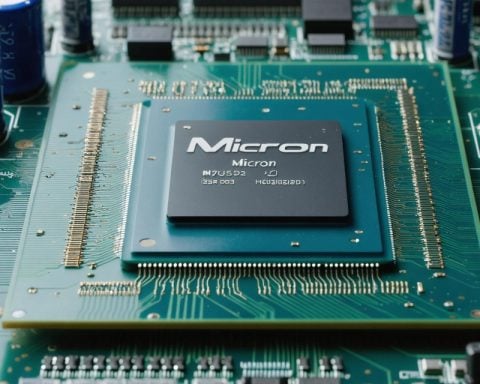- Intuitive machines employ cognitive models to mimic human intuition, potentially transforming machine intelligence.
- This technology could revolutionize healthcare by diagnosing diseases through intuitive pattern recognition.
- Enhanced human-machine interaction emerges as intuitive machines understand emotional cues, benefiting customer service and user experiences.
- In autonomous vehicles, these machines can improve real-time decision-making by making intuitive judgment calls.
- The rise of intuitive machines introduces ethical challenges, highlighting the need for responsible AI accountability frameworks.
In the fast-paced world of technology, a new frontier is emerging that promises to reshape our interaction with machines: the era of intuitive machines. Unlike traditional algorithms and AI that rely heavily on data input and predefined logic, intuitive machines aim to fundamentally change how we perceive machine intelligence by adopting a more human-centric approach.
At the core of this development is the integration of cognitive models that mimic human intuition. These machines not only process vast amounts of data but also apply cognitive biases and emotional understanding akin to human intuition. This could lead to breakthroughs in sectors such as healthcare, where machines could assist in diagnosing diseases by intuitively identifying patterns even seasoned doctors might miss.
Moreover, intuitive machines stand to revolutionize human-machine interaction. By understanding unspoken cues and emotional undertones, these machines could enhance user experiences in customer service, creating seamless interactions that feel personal and empathetic. In the field of autonomous vehicles, they could make judgement calls in unpredictable situations, improving decision-making in real-time.
The promise of intuitive machines, however, raises crucial ethical questions. The ability of machines to factor in emotional and irrational human nuances challenges our current understanding of AI accountability. As we edge closer to this new paradigm, it becomes essential to balance technological advancements with ethical considerations to ensure a future where intuitive machines are trusted allies rather than unsettling enigmas.
Are Intuitive Machines the Next Leap in AI Evolution?
How Do Intuitive Machines Work Differently From Traditional AI?
Intuitive machines represent a significant shift from conventional AI by leveraging cognitive models that mimic human intuition. Unlike traditional algorithms that rely on predefined sets of rules and data, intuitive machines incorporate emotional and cognitive processing patterns to interpret human-like insights. This involves recognizing patterns, making inferences based on incomplete information, and understanding the emotional and relational context of data. These capabilities aim to make machine interactions feel more natural and human-like.
Key features that distinguish intuitive machines include:
– Pattern Recognition: Beyond statistical analysis, they perceive abstract patterns akin to human intuition.
– Emotional AI: They can understand and respond to emotional cues and social signals.
– Adaptive Learning: They learn from experiences over time, developing a nuanced understanding of their environment and users.
What Are the Potential Use Cases and Benefits of Intuitive Machines?
Intuitive machines hold promise across various fields by enhancing the depth and quality of human-machine interactions. Here are some notable use cases:
1. Healthcare: Intuitive machines could vastly improve diagnostic processes. For instance, they can intuitively recognize patterns in medical imaging and patient history, providing augmented insights which might be missed by human practitioners.
2. Customer Service: They can revolutionize how businesses interact with consumers by enabling more personalized customer service environments. Machines that understand emotional cues can respond in more empathetic and satisfactory ways, leading to better customer experiences.
3. Autonomous Vehicles: By making complex judgement calls in dynamic environments, intuitive machines can enhance the safety and efficiency of autonomous vehicles, enabling them to react appropriately to unforeseen road conditions.
4. Education: Personalized learning experiences can be developed by understanding the emotional and cognitive states of students, thus tailoring educational content to individual needs.
What Are the Ethical Implications and Market Forecasts for Intuitive Machines?
The integration of intuitive machines into society prompts significant ethical considerations. The ability of these machines to process and mimic human intuition necessitates a re-evaluation of AI accountability and transparency. It’s imperative to establish guidelines to govern their decision-making processes, especially in sensitive areas like patient diagnosis or in autonomous decision-making vehicles.
Despite these ethical challenges, the market for intuitive machines is anticipated to expand rapidly. As industries recognize the value of human-centric AI, investments in research and development are expected to increase substantially. Market analysts predict a burgeoning field, particularly in sectors that benefit most from empathetic machine interactions, such as healthcare, automotive, and customer service industries.
For further insights into how intuitive machines are redefining artificial intelligence, visit IBM and Deloitte.





















